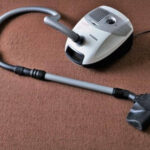Generally, the best time to wash clothes should be a matter of choice and preference. But having in mind sensitive weather patterns and energy bill issues, you might want a time schedule that works while keeping an extra dollar in your pocket.
When it comes to weather issues, look at the whole issue from the perspective of seasons. You cannot plan on washing clothes the same time of the day in winter as you would in the summer because you would be dealing with a set of challenges that are completely different.
For instance, it might be a good idea to wash clothes in the morning during summer because there might be ample sunlight throughout the day to dry clothes on a clothesline.
Ideally, unless your area experiences favorable weather from January to December, each season is unique and this might have a hand on your washing patterns.
Summary
Wash clothes early in the morning during summer. This could be anywhere from 5 am to 8 am. These are off-peak hours and you might get favorable rates depending on your power provider. Avoid afternoons and at night when people run their air conditioners.
Wash clothes at night during winter when most people have their heaters off. Understand the rates of your electricity provider during different times of the day in autumn and spring so that you can find the most cost-effective time for washing your clothes.
Best time to Wash Clothes in summer
I won’t even lie. Every time I plan to wash clothes in the summer, I always wake up pumped for the task. Getting the job done in the morning is the best logic for me. For starters, I can wash everything including the line dry and dry flat garments because I don’t have to worry about them taking too long to dry.
Secondly, summer mornings give me the confidence to ignore my dryer even when I do not need to. I mean, what’s better than the fresh smell of clothes left to dry in the sun all day? Even better, I do not have to part with my hard earned cash paying for unnecessary dryer bills.
Bu since this is not about me, let’s have a general perspective of what would be the best time to wash clothes in the summer. To begin with, you have to look at the weather and how it can be of benefit to your laundry schedule. The second factor to consider is the cost for running your washer and tumble dryer.
Normally, summer time is the season for running air conditioners at night. This means that the nights are peak hours in respect to energy consumption. It is important to know whether the cost of electricity varies with hours in your region or with your power provider.
That being said, the cost might not vary in many areas but there are places that offer incentives for conserving energy during peak hours. Have you heard of such a program?
These factors considered, the most ideal time is to wash your clothes is in the morning. And as I mentioned earlier, there are additional benefits to doing laundry during summer mornings. You ignore the dryer altogether, install a clothesline, and enjoy the benefits of line/air drying clothes.
Best time to do Laundry in winter
If you have enough clothes to wear throughout winter months, then you might be better off doing it to avoid laundering altogether. Unfortunately, this would create the right conditions for molds and the smell of it in some poorly ventilated houses.
Dirty clothes attract molds especially in the presence of other favorable conditions.
Given the weather conditions of winter, electricity bill is probably the only factor you are likely to consider when making your laundry decisions. In this regard, the peak hours are usually early mornings in most regions. This is the time that people wake up to turn on their heater.
With that in mind, late nights provide the most appropriate time for washing and drying your clothes.
Ways to Improve Energy Efficiency when Doing Laundry
Washing clothes can drive your electricity bills to the roof. In most households, the routine is to launder at least once or twice a week. This means that no matter how deep the pockets are, each turn digs deeper into them, which increases the chances for brokenness.
Besides choosing to wash during off-peak hours, there are some other things that you can do to cut down power cost.
Use High Efficiency Machines
Technology keeps changing and the world of doing laundry is not lagging behind. Today, there are high efficiency (HE) machines that offer exceptional performance in respect to utilization of resources.
Unlike traditional top and front loaders, you stand a better chance for using less water and electricity with a high efficiency machine. Not to mention, HE washers are also economical when it comes to detergent use.
When you combine the right washing time with a HE machine, there is no doubt you will save more especially when you break down the budget monthly or annually.
Wash a Full Load
Throwing two or three pieces of clothing in the washer is not a mistake. However, it is a big deal if you look at it from the perspective of energy consumption.
Whether you are washing a single garment or a laundry basket of dirty clothes, you machine consumes the same amount of power if it runs for the same amount of time.
It is more cost effective to load your washer to full capacity.
Wash Similar Clothes Together
Clothes vary based on fabric and soil level. It is good practice to wash clothes that are similar or almost similar together and the same principle applies for soil level.
Sorting clothes on the basis of fabric influences the choice of your wash cycle. Since wash cycles differ in length, you can save power by using the appropriate wash cycle for each load.
Sort Clothes when Drying
Sort clothes before loading them into the dryer because some clothes dry faster than others. Clothes that take long to dry such as cotton towels and linen can keep light fabrics in the dryer for a long time unnecessarily.
Maintain your Machines
It is always important to ensure that your machines have no defects because some problems can lead to high energy consumption. Further, always ensure that you clean your dryer’s filter to allow proper circulation of air during tumble drying.
A clogged filter affects air flow into the drum thereby slowing down the drying process.
Line Dry Clothes
You can wash clothes in the machine but save on electricity bills by hanging them on a clothesline to dry indoors or outdoors. You can also use a dryer rack to hang or flat dry sensitive fabrics.
Besides low costs, air drying has additional benefits such as making clothes smell fresh, improving the appearance of whites and lights, providing ample drying space for heavy and large garments and keeping clothes lint and wrinkle free.
Use the Cold Water Settings
Always wash clothes in cold water settings unless you are dealing with heavy soiling and stains. Cold water is gentle on your garments and cost effective.
Ideally, the cost of running a hot water cycle is much higher compared to that of running a cold water cycle.
Since cold water might be slow on stains, pretreat stains first before running a complete laundry cycle.
Is it cheaper to do laundry at night or during the day?
Depending on whether electricity prices by your power provider vary with peak and off-peak hours, it might be cheaper to do laundry at night during winter and early in the morning during summer. In other seasons, you would have to determine the cost of power in your area during different hours of the day and make the decision accordingly.
Power is cheaper at night in most areas during winter because most people turn on their heaters in the morning. On the other hand, early mornings tend to be more cost effective during summer because people run air conditioners in the afternoons and at night.
Is it cheaper to do laundry on weekends?
It might or might not be cheaper to do laundry on weekends depending on the time of the day you choose to do the task and whether the costs of power in your area varies with peak and off-peak hours.





